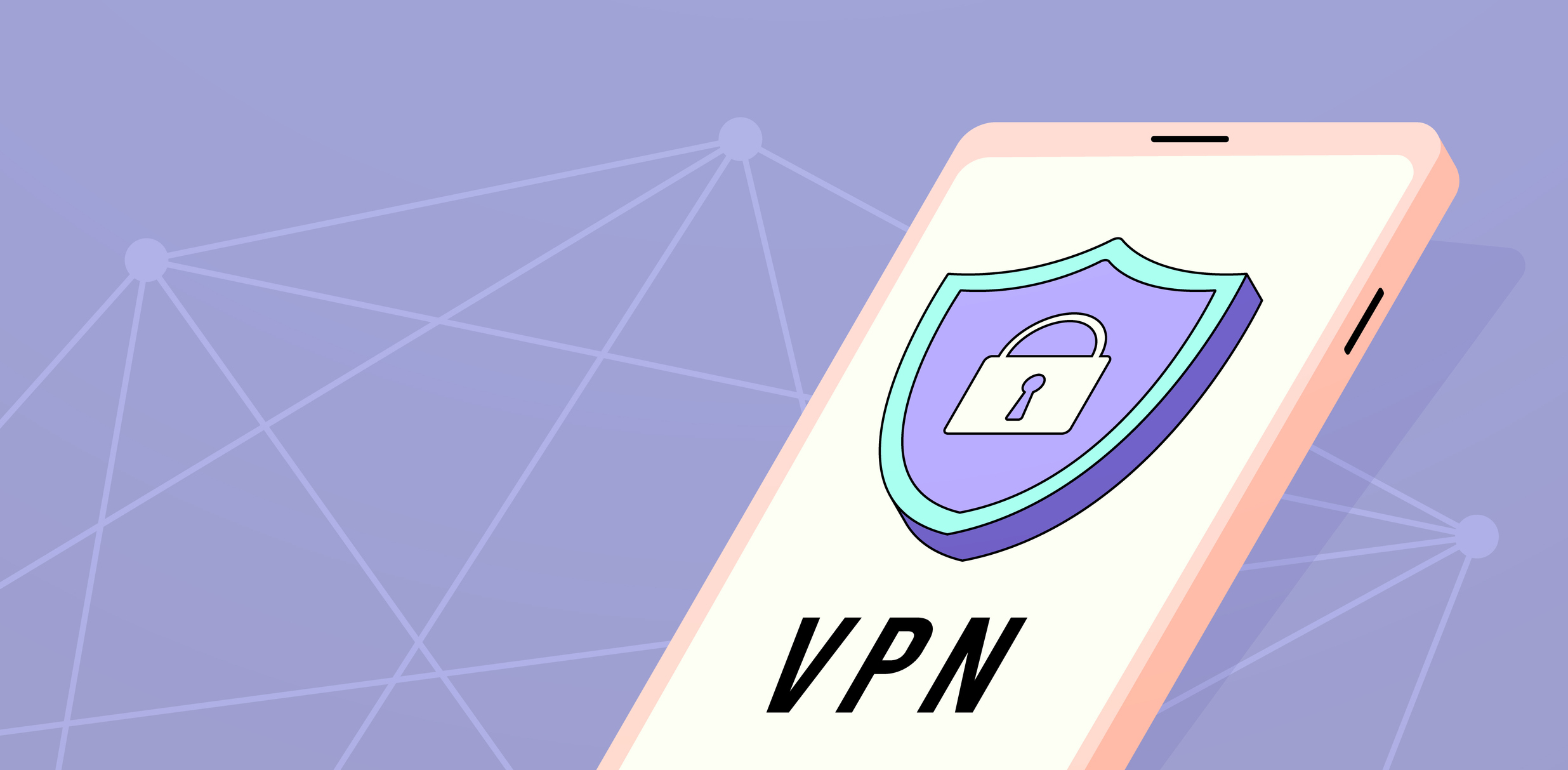Should your VPN always be on?
Don't flip that switch

If you're using a reliable VPN with good connectivity, you won't notice that it's on as you go about your day-to-day browsing. An active VPN gives your digital privacy a serious boost – protecting your home IP address and putting a stop to third-party snoopers.
Keeping your VPN on 24/7 is as easy as enabling the "auto-connect" setting. If your VPN doesn't have this feature, it's time to check out our best VPN rankings to see what else you might be missing.
So, let's dig into the main reasons why it's better to let your VPN do its thing in the background.
1. When you want improved digital privacy
When you browse the internet without encryption, your data can be intercepted by hackers, advertisers, or even your internet service provider (ISP).
These entities may gather personal information, track your online behavior, or monitor your location. Public Wi-Fi networks are especially vulnerable to snooping, seeing as these free hotspots lack the same security measures as the internet you use at home, making them an especially tempting target for malicious actors.
A VPN encrypts your internet traffic before it leaves your device, making the data unreadable to third parties who try to take a peek. This encryption forms a secure tunnel, protecting your sensitive information from prying eyes, whether you're browsing from home or connecting to a public network.
2. When using public Wi-Fi
Public Wi-Fi is just that, public. There's a chance that someone will be able to monitor your connection when you use a free hotspot. While most of your web traffic is encrypted nowadays, this isn't true for all of it.
So, if you want to be certain that you're not being spied on while using public Wi-Fi, you need to keep your VPN on.
Otherwise, you could fall victim to several different types of public Wi-Fi attacks. The worst is the “Evil Twin” attack, where a malicious operator runs a Wi-Fi access point that collects all of the data passing through it, potentially stripping your website encryption. Even if you do connect to a poisoned access point, keeping your VPN on at all times will ensure the hacker can’t see the traffic you’re sending.
3. When you want to unblock content
Streaming platforms have to stick to regional licensing agreements – which dictate where certain shows and movies can (and can't) be broadcast. This is why your Netflix account serves up different content when you're overseas.

Looking for the perfect VPN to pair with your favorite Netflix content? Check out our best Netflix VPN rankings for the details.
With a streaming VPN, you can trick the sites you visit into thinking you're elsewhere in the world by connecting to a VPN server in another location. This means you'll always have access to your favorite shows when you're away from home, as well as new releases that are locked to a specific region.
It's not just streaming sites that have to abide by these restrictions, either. You’ll run into news sites, social media platforms, and online games that do it too. Keeping your VPN on means you’ll be able to sidestep these blocks with ease.
4. When shopping for bargains
Today's top VPNs have servers dotted all over the world – meaning you can spoof your location on demand. This is useful if you’re hunting for region-specific deals or taking advantage of the difference in currency conversion between countries.
A VPN can protect you from online price hikes, too. Hotel and flight providers bump up their prices over time if they detect you eyeballing the same product, but with a VPN, you'll see the original price without any extra cost on top.
Although most card providers have fairly strong encryption in place to keep snoopers from reading your traffic, that’s not true of all of them. It’s always better to be safe than sorry, after all, so keeping your VPN on gives you that extra layer of encryption which guarantees your details aren’t being picked out by a third party over the wire.
5. When you’re tired of targeted ads
Targeted ads stalk you across the internet and use data points, like your IP address, to identify you and your browsing habits.
Once they've built up a profile of the things you like and don't like, advertisers use this information to spin up ads for products they hope you'll be interested in.
It gets even worse if you rely on free Wi-Fi, too, which catalogs every site you use in real-time for advertising purposes.
Luckily, using a secure VPN keeps the network operator from being able to read your traffic by encrypting it, so it’s best to leave it on.
While ad providers have moved past solely using your IP and now tend to use more in-depth metrics and cookies to track your movements, VPNs can still protect you by blocking your connection to these ad providers in the first place.
VPNs like NordVPN and Surfshark have both built-in browser-level ad blockers and DNS-level blocklists, providing as much privacy as possible against intrusive ad networks.
6. When you’re in a privacy-unfriendly environment
Internet surveillance is becoming a daily part of people’s lives around the world – much to the dismay of privacy experts. One of the ways you can take back your freedom, and browse the net in private without fear of censorship, is by using a VPN. Leaving it on ensures that none of your data is being leaked back to your ISP, meaning that you won’t fall foul of censorship laws.
Without a VPN, it’s also very difficult to access social media platforms and uncensored versions of Wikipedia in countries like Russia and China. With one on, your DNS requests are obfuscated so the ISP you’re using can’t detect and block the sites you’re visiting.
7. When you want to get around firewalls
When you’re working from the office or at school, you’re at the behest of the network policy. There’s a bunch of safeguards in place to stop you from accessing inappropriate content which, you know, is fair enough.
With a VPN, you can punch through most of these firewalls
However, I think we’ve all encountered at least one particularly overzealous firewall which has stopped us from accessing content we need to get our work done.
With a VPN, you can punch through most of these firewalls like cheap tissue paper. Your network admin won’t be able to see what you’re accessing, as all of your traffic is encrypted. Where possible, you should look for an obfuscated VPN protocol that uses the same ports as HTTPS so it’s more difficult to tell if you're using a VPN.
8. When you want to avoid bandwidth throttling
VPNs are great for avoiding bandwidth restrictions. Normally, your ISP monitors all of your traffic for telltale signs that you’re doing something that’s quite greedy with bandwidth, like streaming or gaming.
This is especially true of torrenting. Some internet providers manage their service by dynamically turning down your download speeds when they detect these activities – it's called ISP throttling.
When you use a VPN, you’re masking all of your traffic behind a layer of encryption. Short of the most advanced (and computationally expensive) monitoring techniques, all traffic looks the same behind a VPN. Your ISP can’t tell whether you’re torrenting or just visiting a lot of websites. As such, you’re way less likely to encounter throttling when you use a VPN.
When should you turn your VPN off?
Despite all these positive points, VPNs can still interfere with your connection in certain cases. Here are some scenarios where it might be better to turn your VPN off.
- If your internet speeds are suffering: while VPNs are usually unobtrusive, you might find your internet speeds are slowing down or you’re getting significant latency, especially while connecting to a geographically distant VPN location. It might be best to turn it off and run a speed test to see if the VPN, or something else, is at fault.
- To access some sites/platforms: when you’re traveling, some Wi-Fi partners won’t route your traffic at all until you log into their portal. The way VPNs block your internet access outside of their connection means you’ll most likely have to drop your VPN for a moment to log in before everything starts working. VPNs are useful for unblocking geo-restricted sites, but some can detect VPN usage and won’t work until it’s switched off
- During online banking: banking apps are very good at noticing anything unusual happening when you log in. While this is great for preventing fraud, some banking apps won’t let you sign in if you’re using an unfamiliar IP address. Although turning off the VPN altogether will solve this, if your VPN supports split-tunneling it might be easier to just route your banking app or website through your normal connection instead.

Sam Dawson is a cybersecurity expert who has over four years of experience reviewing security-related software products. He focuses his writing on VPNs and security, previously writing for ProPrivacy before freelancing for Future PLC's brands, including TechRadar. Between running a penetration testing company and finishing a PhD focusing on speculative execution attacks at the University of Kent, he still somehow finds the time to keep an eye on how technology is impacting current affairs.